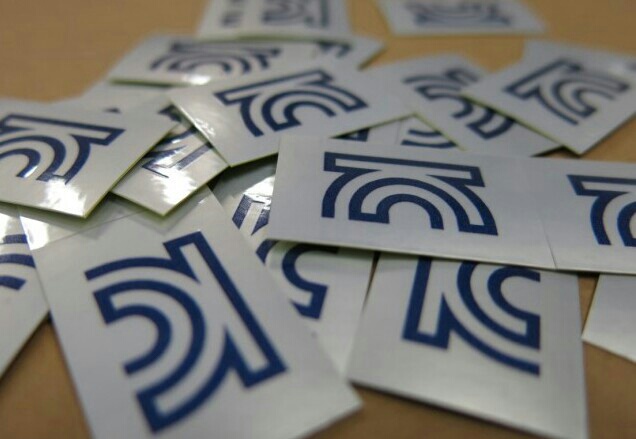 |
| ▲ Under the the Electrical Goods and Daily Supplies Safety Control Act, all products sold in Korea must have the KC stamp, guaranteeing product safety for consumers. |
Where do you buy your clothes? We can buy clothes from department stores, outlets, offline stores and online stores. And sometimes, we can buy them directly at lower prices from other countries, get secondhand clothes which are already out of stock, or find what we need through internet group purchases. In other words, we can all find clothes from diverse places at prices to suit our personal budgets and each location has its merit based on price accessibility. However, because of the Electrical Goods and Daily Supplies Safety Control Act (EDCA), we may not be able to purchase discount clothes at low prices anymore.
Prior to January 28, 2017 the Electrical Appliances Safety Control Act governed the sale and purchase of electronic and industrial products, while the Daily Supplies Control Act covered general merchandise. However, on January 28, the government combined these two laws and announced stricter enforcement under a newly revised EDCA. Under the new law, manufacturers are required to attain an integrated national certification mark for electrical appliances, industrial goods, and general merchandise. Clearly manufacturers were not adequately prepared for the change as there have been so many complaints and confusion surrounding the law since it came into force. At present, among the several new clauses added to the EDCA, the obligation for online shopping malls to have Korean Certification (KC) marks and equipping importers and industrial products manufacturers with the seal have been postponed a year to give time to those affected to comply with the new standards.
After the humidifier germicide Oxy incident, many people insisted on reinforcing the health and safety standards of products sold in Korea. As a result, the government decided to combine similar laws dealing with product safety. Thus, the new changes were intended to protect the public. Under the new law, all products sold in Korea must have the KC stamp, guaranteeing product safety for consumers.
While the purpose of the changes to the law was to protect consumers, there have been several problems with its implementation. First, manufacturers, especially small-scale businesses, have felt the biggest impact of these new requirements. Fees for approval stamps for a single product begin around 50,000 won. However, this price increases according to the number of fibers blended in the material or subsidiary materials used, the colors of clothes, or other items. For example, if you want to make a 3 color T-shirt consisting of 50% polyester, 30% cotton, and 20% artificial silk, you need 6 KC stamps if not more. Also, if you make finished products, you are required to get one more final certification. The newly added costs will range from tens of thousands won and up undoubtedly affecting the price for the consumer. Small Businesses and handmade goods manufacturers that cannot afford these administrative fees will simply have to close. While cost is a major problem, the time required to secure all the certification is also a problem. In the case of clothes, trends change so quickly and they are also sensitive to weather. So, companies now have to deal with increased prices, more bureaucracy and risk missing out on trends and even seasons. The same cannot be said for larger companies. They are easily able to secure KC and in fact, almost every product sold in a department store or official brand store already secures KC.
Second, this is not only a problem for local manufacturers. Parallel importers are also falling victim to the new layers of bureaucracy. The products made in other countries, are hard to approve and if they are not certified, they will be illegal items in Korea. Parallel imports and foreign named substitutes are often cheaper and Koreans can get rare and popular products more easily by importing them from abroad. However, these restrictions on parallel importers affect consumers too.
Finally, the new law will impact ordinary citizens. In addition to the added burden to product manufacturing costs being passed on to the consumer, people wishing to buy and sell used goods will also be impacted by the law. For instance, the private sale of uncertified electronic goods is subject to a fine. Also, selling products that are not KC, including vintage products, are also prohibited.
These difficulties are currently being looked at by the government. The presidential candidates have all made pledges to resolve the problems with the controversial EDCA. Some have asserted excluding objects with a low possibility of harm, while others have suggested simplifying the process. In addition, the government is considering granting equivalencies for imported products that already received safety certification in their country of origin.
Although the changes were well intended, confidence in the newly boosted KC mark remains low. Oxy, the product that triggered the changes, had KC approval, leading consumers to believe the seal of safety is effectively meaningless. Before the law goes into full effect, reinforcement of the certification approval process should be made a top priority. Furthermore, consideration for small-scale businesses and communication with workers in related industries are also needed. Before this measure was enacted, the safety of our clothes or daily necessities was not an issue. Therefore, improving product safety while transferring a heavy burden on to manufacturers and consumers is unwarranted and it simply isn’t good policy. The new government can choose to improve or discard the changes to the EDCA. Whatever route they choose, the policy they create should take us in a better direction than we are headed now.
허윤아 dankookherald@gmail.com

![[Campus Magnifier] Let's Surf the Library!](/news/photo/202404/12496_1765_4143.jpg) [Campus Magnifier] Let's Surf the Library!
[Campus Magnifier] Let's Surf the Library!
![[Campus Magnifier] Let's Surf the Library!](/news/thumbnail/202404/12496_1765_4143_v150.jpg)





